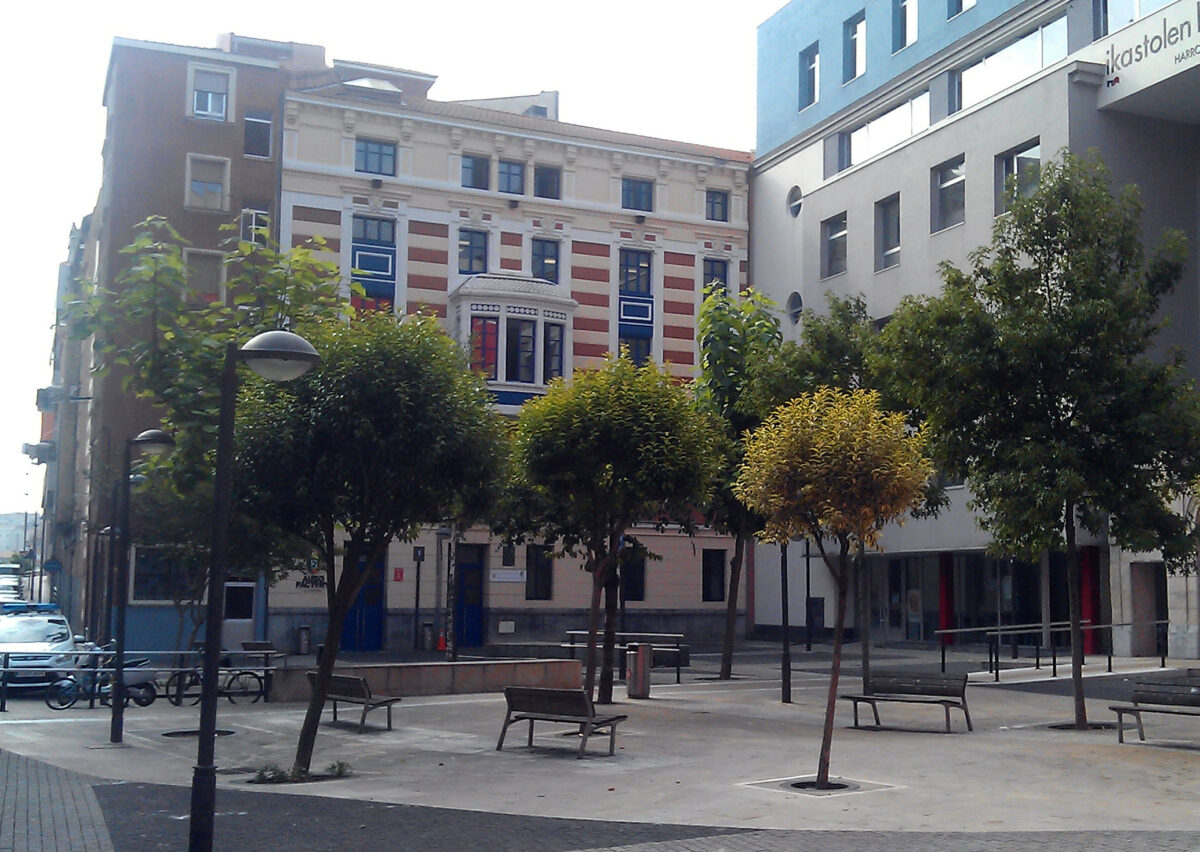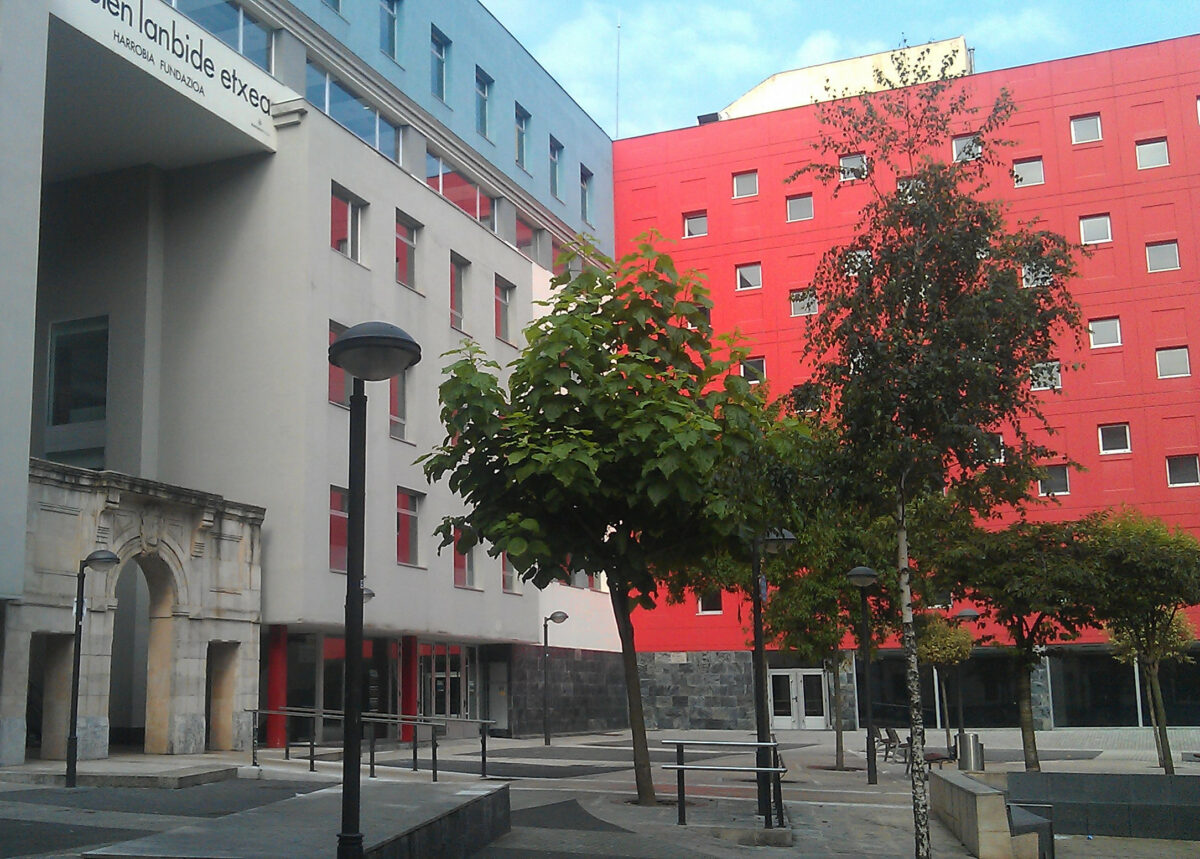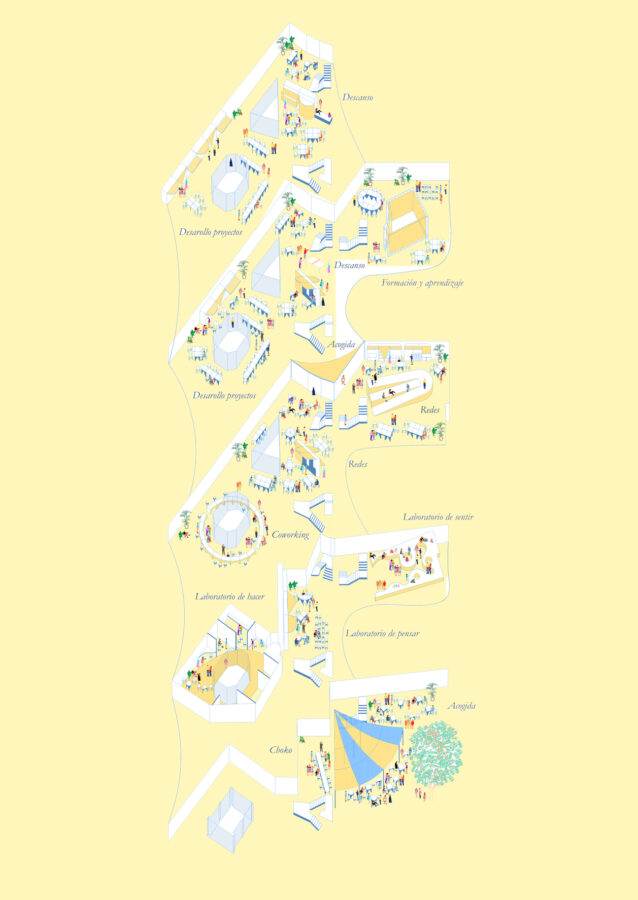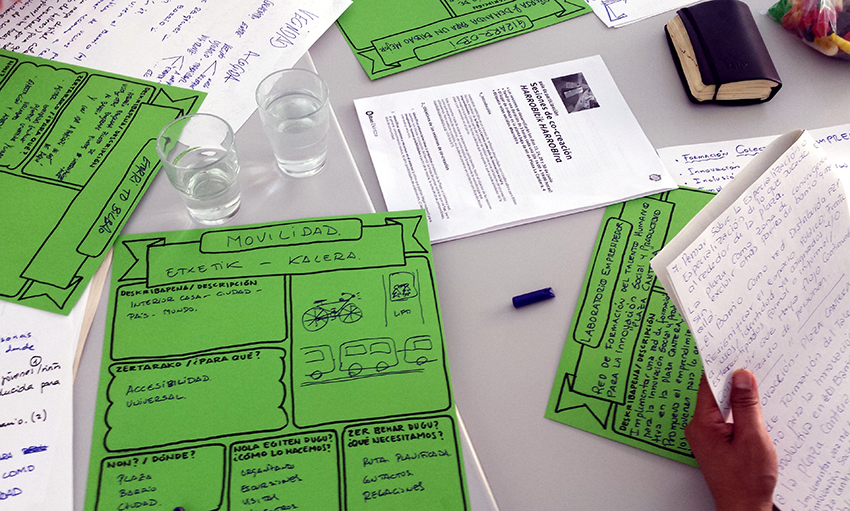
HARROBIA or “quarry” is a square in the San Francisco neighbourhood in Bilbao’s city centre. An area whose current socio economic situation is affected by two simultaneous strains. On the one hand, there are high poverty and low employment levels and social exclusion. And on the other, a gentrification and urban regeneration process which draws the attention of new sectors in the hospitality, tourism and creative employment industries. This duality is viewed as an opportunity by Bilbao’s local government, who is suggesting to carry out a particular long-term proposal, within the strategic plan for the neighbourhood regeneration, with the collaboration of as many participants as possible involved in its design and implementation.
The challenge was improving the citizens’ quality of life while keeping the neighbourhood’s personality intact. How to attract new human capital without driving the existing one away. From ColaBoraBora, we are presenting a conceptualisation and a co-design process in several stages that works as a civic lab which defines: the role of every stakeholder involved, the future services and activities, the governance model and a business model. My main role consisted on, together with the project manager, being a user researcher, working on the conceptualisation of the project and facilitating workshops.



A HUB of Social and Solidarity Economy in which several diverse agents (public, private and citizens’ associations) come together to offer services and other activities related to: formative programmes, social entrepreneurship plans, accompaniment processes, business incubators, financial instruments, research projects, evaluation systems, innovation in public policies, communication, etc.
Principles from Social and Solidarity Economy are applied, a model that puts the economy at the service of people and fits perfectly with the 17 Sustainable Development Goals (SDGs) from the United Nations’ Agenda for 2030.
Those principles are: (1) Justice and equity, both as a means and as a goal. (2) Decent and steady employment. (3) Commitment with the environment. (4) Cooperation, networking and mutual support. (5) Supremacy of people over capital. (6) Democratic, participatory and transparent management.
A connected ecosystem that integrates the following characteristics and touchpoints:




Harrobia is an ambitious and complex project and is carried out in two different stages over the course of two years, marked by different ups and downs, political, budgetary and conflicts of interests in communities, both public and private. Its participatory nature is a challenge within the process itself which enriches the outcome, but it is not exempt from managing the diversity and differences which configure a shared proposal. Over the whole process, ColaBoraBora provides the meeting places and revitalises the meetings of all the agents in the network by keeping a constant dialogue with the local government and its technical and political personnel.
During the first stage, the fundamentals are set, opportunities are defined and the concept for the HUB is created. There is a thorough secondary research of models and inspiring case studies, and a primary research through interviews to 50 different agents in the neighbourhood. As a first outcome, a report is edited, containing all the insights and the design for the HUB. At the second stage, several co-creation labs are built in one of the square’s spaces and a monitoring and contrast group is created, formed of about 10 people representing the different groups of agents. A second report shows the whole conceptualisation, an Action Plan and a viability study. The third stage, pending approval from the local government, will consist on the architectonic adaptation for new uses, provision of equipment and furniture as well as the start-up.





Its participatory nature is a challenge within the process itself which enriches the outcome, but it is not exempt from managing the diversity and differences which configure a shared proposal.


Client: Bilbao City Council
Team: ColaBoraBora
Collaborators: Social and Solidarity Economy Basque Network
Date: 1st phase (2016) – 2nd phase (2018)
My Role: Facilitator | Researcher
Key Methods: Cardboard prototyping. Contextual interviews. Co-creation.